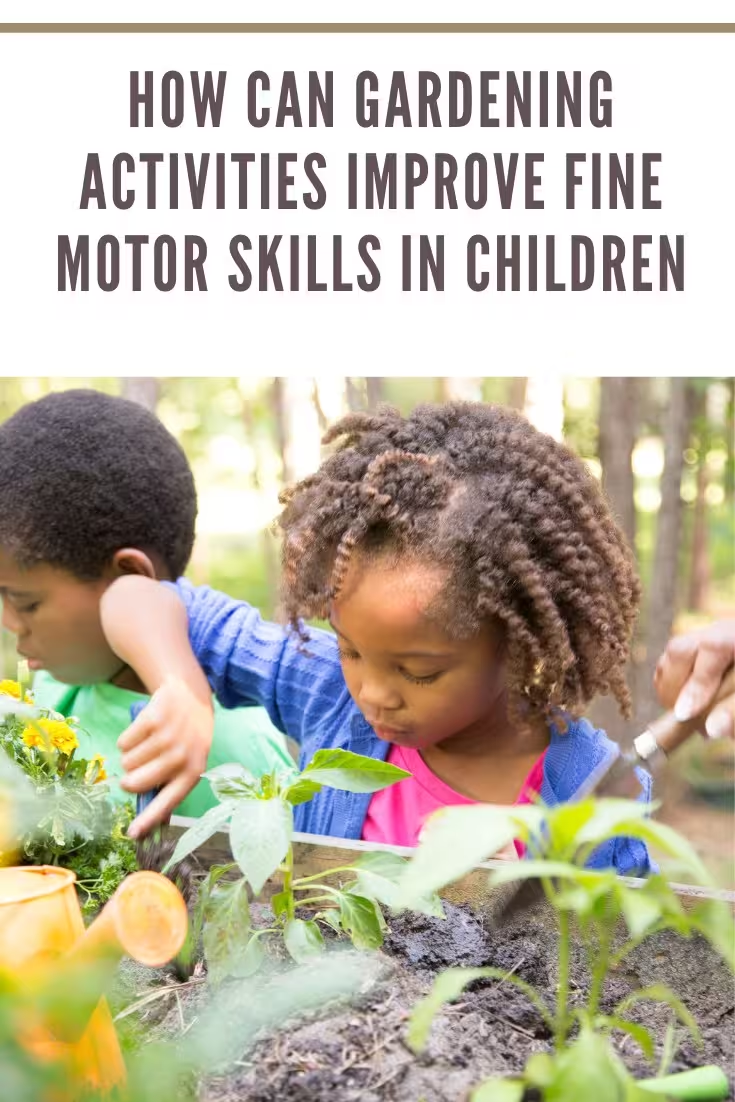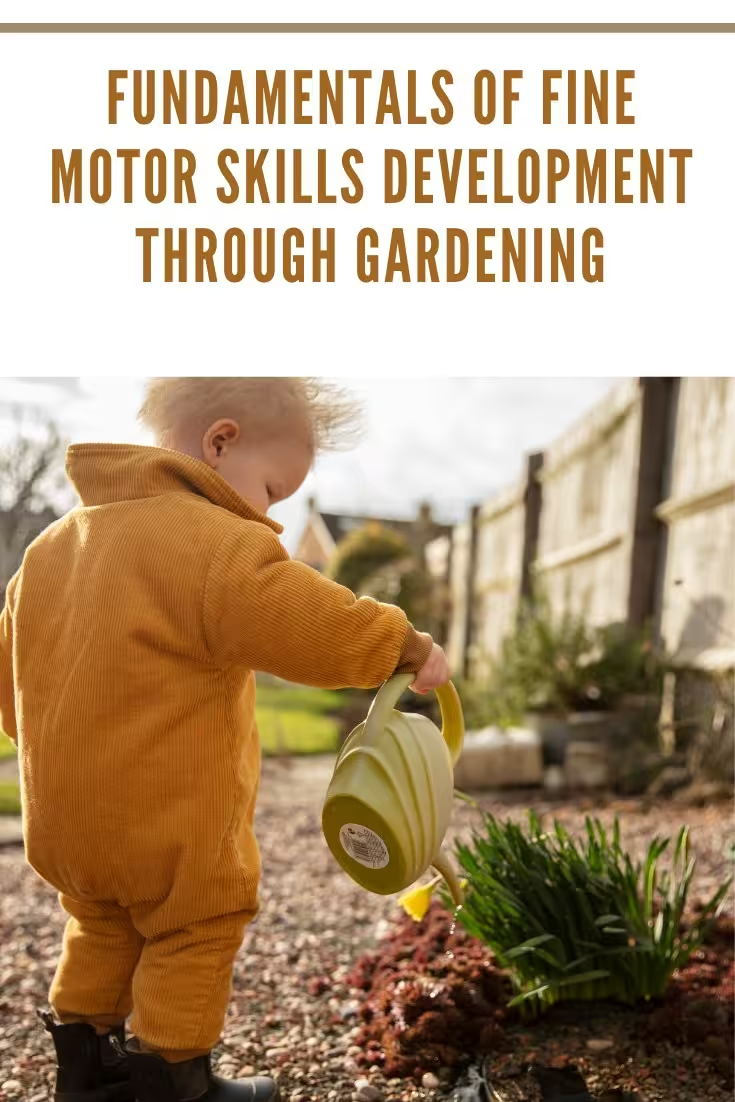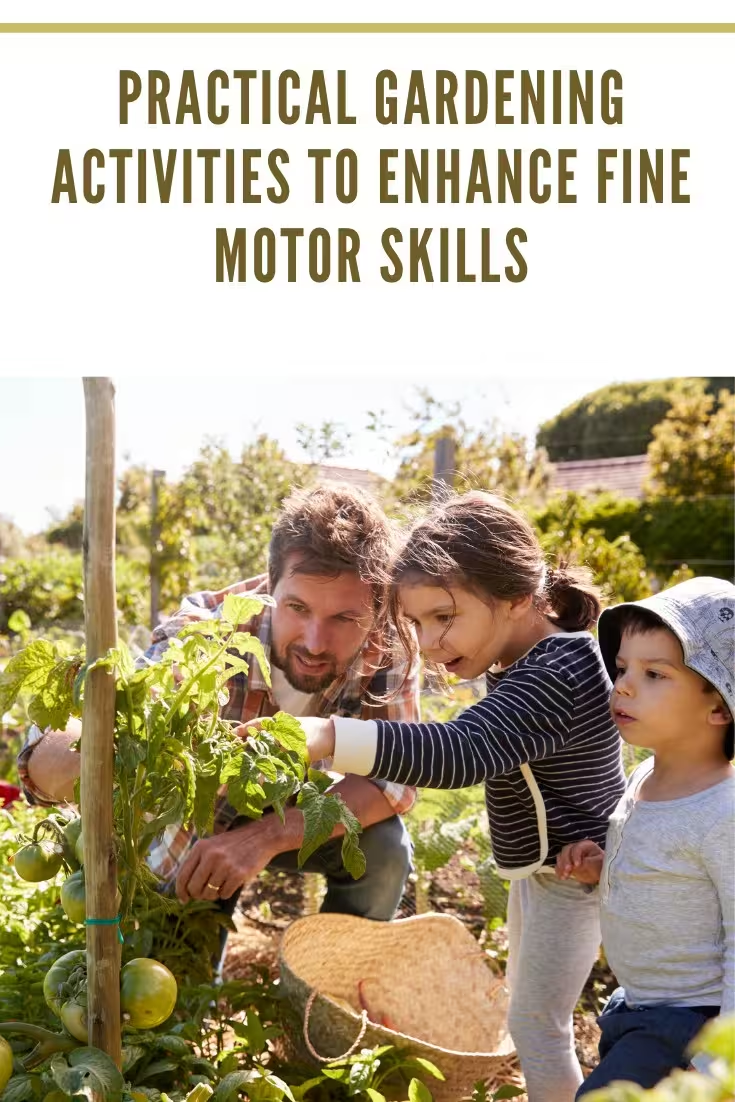Explore how gardening activities improve fine motor skills in children while providing a fun, sensory-rich learning experience that nurtures growth!
How Can Gardening Activities Improve Fine Motor Skills In Children?
Gardening is not just a fun pastime; it’s an engaging and constructive activity that provides numerous benefits for children, particularly in developing their fine motor skills. Imagine a sunny afternoon in April, where the air is fresh and filled with the earthy scent of soil. Children, with their little hands caked in dirt, engage in tasks like sowing seeds, watering plants, and digging soil. These activities are not only enjoyable but also crucial for improving the coordination of their small muscles in the hands and fingers.
As parents and caregivers, we can facilitate these experiences, whether at home, in daycare settings, or through occupational therapy sessions. The variety of textures and sizes of plants and gardening tools gives children the perfect opportunity to practice and enhance their dexterity and hand-eye coordination. This sensory engagement with the environment is vital for fine motor skill development in young children.
Key Takeaways
- Gardening tasks support the development of children’s fine motor skills.
- Sensory interactions in gardening help children enhance dexterity and coordination.
- Fine motor skills are foundational for children’s daily functioning and independence.

Fundamentals of Fine Motor Skills Development Through Gardening
Understanding Fine Motor Skills
Fine motor skills are all about the delicate use of small muscles in the hands and fingers, working in harmony with the eyes. For instance, when children plant a garden, they pick up seeds between their thumb and forefinger. This simple action strengthens these crucial muscles and improves their dexterity. Skills like handwriting, using scissors, and manipulating small objects all depend on these finely tuned movements. Gardening can serve as an enjoyable and effective exercise routine to enhance these skills.
Benefits of Gardening for Motor Skills
Gardening offers rich sensory stimulation and a unique setting for motor skill development. Consider the delightful moment when a child scoops soil into their planting hole; they’re not only learning to measure and control their actions, but also refining their grasp and release techniques. Watering plants demands a steady hand and control of pressure, further enhancing motor skills. As they grow more proficient, their confidence and independence in performing other detailed activities also increase.

Starting with Gardening Basics
To support fine motor skill development, start with simple gardening tasks:
- Sowing Seeds: Encourage your child to carefully drop seeds into the soil. This practice sharpens precision and pincer grip.
- Digging: Equip them with small tools to dig holes for seeds or plants, promoting hand-eye coordination.
- Pinching and Plucking: Teach them to remove dead leaves or thin out seedlings. This activity develops finger strength and dexterity.
By regularly practicing these fundamental garden activities, children’s fine motor skill development can blossom alongside their plants.

Practical Gardening Activities to Enhance Fine Motor Skills
Gardening provides a multitude of opportunities for children to sharpen their fine motor skills through engaging, hands-on activities. Here are some practical ideas to consider:
Seed Planting and Care
Planting seeds is a precise task that promotes hand-eye coordination and fine motor control. Start with larger seeds like beans, peas, and sunflowers, which are easier for little hands to handle. Children learn to space individual seeds correctly by reading the instructions on a seed packet. As they progress, planting tinier seeds, such as basil or nasturtiums, challenges their ability to handle very small objects.
I remember a sunny day in my backyard when my daughter, Emily, planted her first sunflower seed. Her focus was unwavering as she carefully placed each seed into the soil, and her joy when she saw the first sprout emerge weeks later was priceless. This experience reinforced the importance of precision in her hand movements.
Garden Tool Usage
Utilizing gardening tools like trowels or mini rakes can help children improve their grip and manipulation skills. For example, scooping soil with a trowel or spreading mulch around plants encourages a variety of hand movements, strengthening their fingers and hands. Selecting the right tool for the task—such as a watering can for irrigation or a hoe to remove weeds—also involves visual-motor integration, combining visual processing with fine motor action.
Harvesting and Further Activities
The act of harvesting refines fine motor skills as children pluck fruits and vegetables or snip herbs. They learn to gauge the right amount of force needed to pick leaves without harming the plant. Additional fine motor activities, such as cleaning produce, organizing them into containers for a container garden, or packaging seeds for future planting, offer a variety of contexts for skill enhancement.
Gardening becomes a comprehensive outdoor activity that encompasses a range of precise hand movements, furthering their coordination, grip, and dexterity.
Conclusion
Gardening activities provide children with an invaluable opportunity to enhance their fine motor skills through a variety of engaging tasks. They learn to manage small tools, which improves hand-eye coordination, while the practice of planting seeds fosters precision and control. The various movements involved—watering with precision, manipulating soil and seeds—not only contribute to muscle development in the hands and fingers but also lay the foundation for essential life skills.
So, why not encourage your child to get their hands dirty in the garden? It’s a fun, rewarding experience that cultivates both a love for nature and vital motor skills. If you’re looking for gardening tools to start this journey, check out my recommendations on Amazon! Start your gardening adventure here!
